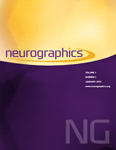
Camping Out in the Hippocampus: Imaging Spectrum of Etiologies That Affect the Hippocampi and Tips for Honing the Differential Diagnosis
The hippocampus is a complex anatomic structure characterized by interlocking folds of gray matter situated within the medial temporal lobes. As a crucial structure within the limbic system, it plays a vital role in memory formation and emotional decision-making. The hippocampi are
susceptible to a heterogenous spectrum of pathologies related but not limited to degenerative, ischemic, drug-related, infectious, metabolic, autoimmune-mediated, and neoplastic etiologies. These include hippocampal sclerosis, Alzheimer disease and frontotemporal dementia, transient global
amnesia, herpes simplex encephalitis, mitochondrial encephalopathy with lactic acidosis and strokelike episodes, ischemic and hemorrhagic infarction, seizure-related edema, autoimmune and paraneoplastic limbic encephalitis, and gliomatous lesions. Although imaging findings for some of these
entities often overlap, which renders them potentially difficult to distinguish from one another, attention to both the imaging and clinical findings is important in narrowing the differential diagnosis.
Learning Objectives: To (1) review the normal hippocampal anatomy, function, and development; (2) recognize common hippocampal pathologies by reviewing original cases that illustrate the spectrum of hippocampal disease; and (3) become aware of the potential pitfalls, variants, and developmental anomalies related to the hippocampus that may confound evaluation for pathology.
Learning Objectives: To (1) review the normal hippocampal anatomy, function, and development; (2) recognize common hippocampal pathologies by reviewing original cases that illustrate the spectrum of hippocampal disease; and (3) become aware of the potential pitfalls, variants, and developmental anomalies related to the hippocampus that may confound evaluation for pathology.
Keywords: FTLD = frontotemporal lobar degeneration; GABAr = γ-aminobutyric acid receptor; GAD = glutamic acid decarboxylase; HSV = herpes simplex virus; MELAS = mitochondrial encephalopathy, lactic acidosis, and stroke like episode; MTA = mesial temporal atrophy; NMDAr = N-methyl D-aspartate receptor; TGA = transient global amnesia; VGKC = voltage-gated potassium channel
Document Type: Research Article
Publication date: 01 February 2019
- Access Key
- Free content
- Partial Free content
- New content
- Open access content
- Partial Open access content
- Subscribed content
- Partial Subscribed content
- Free trial content